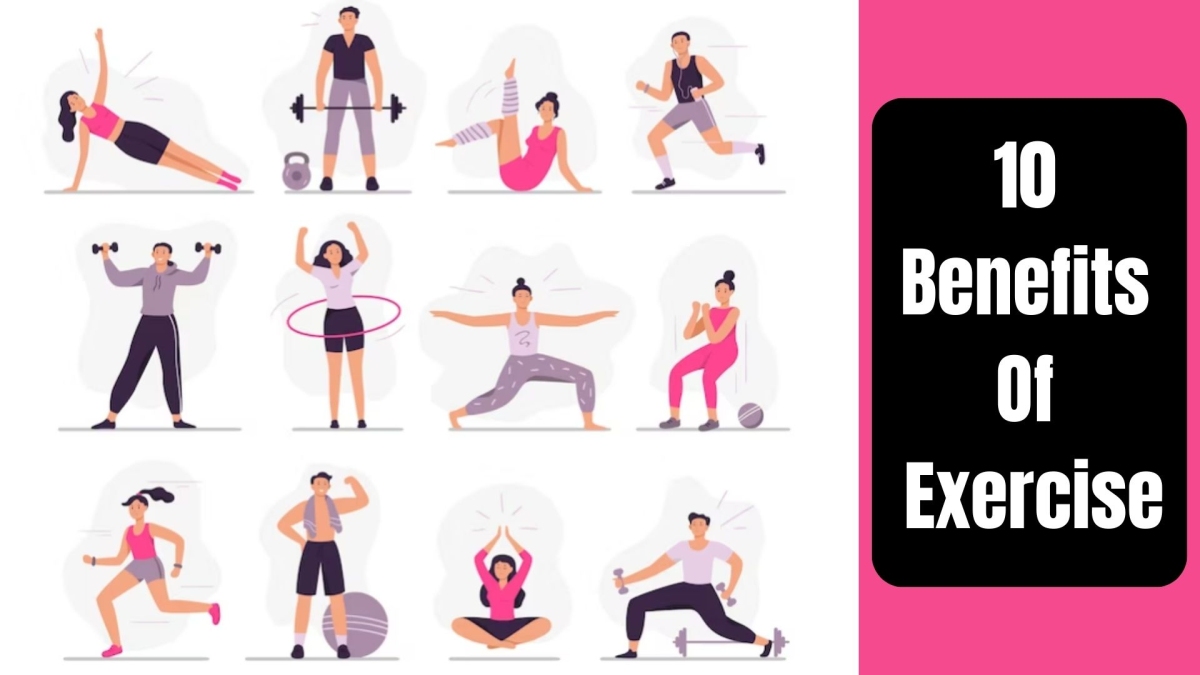The Benefits of Fitness: Achieving Optimal Health and Well-being
Fitness is a crucial aspect of our lives that directly impacts our overall health and well-being. Engaging in regular physical activity and maintaining a fit lifestyle brings forth a myriad of benefits that positively influence various aspects of our lives. In this comprehensive article, we delve into the numerous advantages of fitness, exploring how it contributes to our physical, mental, and emotional well-being.
Enhanced Physical Health
Regular exercise and fitness routines play a vital role in improving and maintaining our physical health. By engaging in physical activities such as cardiovascular exercises, strength training, and flexibility exercises, we can reap a multitude of benefits.
Improved Cardiovascular Health
One of the primary benefits of fitness is the improvement of cardiovascular health. Engaging in activities that elevate your heart rate, such as running, swimming, or cycling, helps strengthen your heart and improve blood circulation. Regular exercise reduces the risk of heart disease, lowers blood pressure, and improves overall cardiovascular function.
Enhanced Strength and Endurance
Another advantage of incorporating fitness into your lifestyle is the development of strength and endurance. Strength training exercises, such as weightlifting or bodyweight exercises, help build lean muscle mass and increase overall strength. Regular workouts also improve endurance, allowing you to engage in physical activities for longer periods without fatigue.
Weight Management and Body Composition
Fitness and exercise are essential for maintaining a healthy weight and managing body composition. Regular physical activity helps burn calories, contributing to weight loss or weight maintenance. Additionally, fitness routines help build muscle and reduce body fat, leading to improved body composition and a more toned physique.
Positive Mental and Emotional Well-being
Beyond the physical benefits, fitness also greatly impacts our mental and emotional well-being. Engaging in regular exercise promotes the release of endorphins, also known as “feel-good” hormones, which contribute to improved mood and reduced stress levels.
Stress Reduction and Mental Clarity
Physical activity has been proven to be an effective stress reliever. Engaging in fitness activities allows you to channel your energy and focus on the present moment, helping reduce anxiety and tension. Regular exercise also enhances mental clarity and cognitive function, improving overall productivity and focus.
Boosted Self-confidence and Body Image
Regular fitness routines can significantly boost self-confidence and improve body image. As you achieve your fitness goals and witness positive changes in your physical appearance, your self-esteem and confidence naturally increase. Exercise helps you feel more comfortable in your skin, promoting a positive body image and mental well-being.
Improved Sleep Quality
Physical activity plays a vital role in promoting better sleep quality. Regular exercise helps regulate your sleep patterns, allowing you to fall asleep faster and enjoy deeper, more restorative sleep. Quality sleep is essential for overall health and well-being, and fitness can help you achieve just that.
Long-term Health and Disease Prevention
Fitness is not only beneficial for immediate health improvements but also plays a crucial role in long-term health and disease prevention. By maintaining a fit and active lifestyle, you can significantly reduce the risk of various chronic conditions.
Reduced Risk of Chronic Diseases
Regular exercise has been linked to a decreased risk of chronic diseases such as heart disease, diabetes, and certain types of cancer. Engaging in physical activities helps control blood sugar levels, maintain healthy cholesterol levels, and improve overall immune function, reducing the risk of developing these conditions.
Stronger Immune System
Fitness and exercise also strengthen the immune system, making you more resistant to illnesses and infections. Regular physical activity enhances the production of antibodies and boosts the efficiency of immune cells, helping your body fight off pathogens and maintain optimal health.

In conclusion, fitness is a key component of achieving optimal health and well-being. Engaging in regular physical activity and maintaining a fit lifestyle offers a wide range of benefits, including enhanced physical health, improved mental and emotional well-being, and long-term disease prevention. By prioritizing fitness and incorporating it into your daily routine, you can take significant strides towards living a healthier, happier life.
Frequently Asked Questions
1. How does regular exercise benefit my overall health?
Regular exercise can improve cardiovascular health, boost the immune system, increase energy levels, and promote better sleep.
2. Can exercise help with weight management?
Absolutely! Regular physical activity can help burn calories, build muscle mass, and increase metabolism, all of which contribute to weight management.
3. What are the mental health benefits of fitness?
Exercise releases endorphins, which are natural mood boosters. It can reduce symptoms of stress, anxiety, and depression, improve cognitive function, and enhance overall mental well-being.
4. Does exercise improve bone density?
Yes, weight-bearing exercises like walking, running, and resistance training can help increase bone density and reduce the risk of osteoporosis.
5. Can fitness contribute to longevity?
Research suggests that regular physical activity can extend lifespan by reducing the risk of chronic diseases such as heart disease, diabetes, and certain types of cancer.
6. How does exercise benefit the heart?
Exercise strengthens the heart muscle, improves circulation, lowers blood pressure, and reduces the risk of cardiovascular diseases.
7. Can fitness improve flexibility and mobility?
Yes, engaging in activities like stretching, yoga, and Pilates can improve flexibility, enhance joint range of motion, and maintain better mobility as you age.
8. Does exercise help in managing chronic conditions?
Absolutely! Regular physical activity can help manage chronic conditions such as diabetes, arthritis, and high blood pressure by controlling symptoms and improving overall health.
9. Can exercise improve sleep quality?
Exercise promotes better sleep by reducing stress, anxiety, and depression, as well as regulating the sleep-wake cycle.
10. How does fitness benefit cognitive function?
Physical activity increases blood flow to the brain, promotes the growth of new brain cells, and improves memory, concentration, and overall cognitive function.




